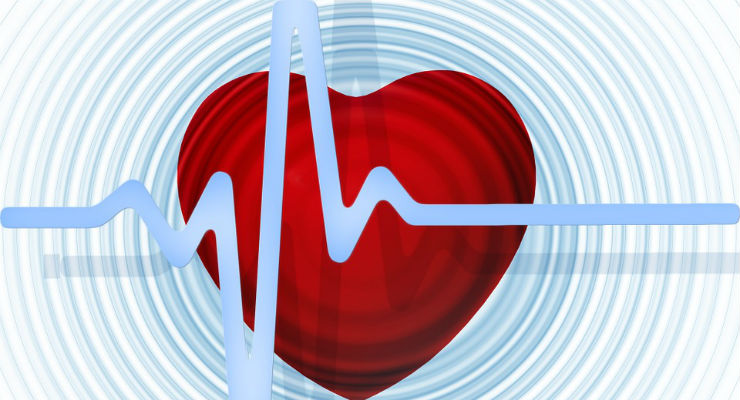Una nuova molecola per contrastare il batticuore / A new molecule to counteract the heartbeat
Una nuova molecola per contrastare il batticuore / A new molecule to counteract the heartbeat
Segnalato dal Dott. Giuseppe Cotellessa / Reported by Dr. Giuseppe Cotellessa

Un gruppo di ricercatori ha messo a punto un peptide che è in grado di contrastare l’accelerazione del battito cardiaco provocato dall’adrenalina. La ricerca apre nuove prospettive nella gestione terapeutica dello scompenso cardiaco e della coronaropatia.
Un gruppo di ricerca dell’Università Statale ha messo a punto un peptide, una molecola formata da pochi aminoacidi ottenuta dalla riduzione di una proteina, in grado di contrastare l’effetto provocato dall’adrenalina sull’accelerazione del battito cardiaco. Il peptide, denominato TRIPnano, agisce in modo selettivo sui canali HCN, che incidono sull’automatismo del battito, impedendo la loro attivazione da parte dell’AMPc, un importante “secondo messaggero” la cui concentrazione viene regolata dall’adrenalina.
Il TRIPnano consente così di non alterare la risposta di altri componenti cellulari importanti, come ad esempio i canali per il calcio, insistendo sui soli canali HCN. La ricerca consente quindi di compiere un ulteriore passo avanti nella comprensione e nel controllo a livello molecolare del ritmo cardiaco e il TRIPnano si propone come un nuovo tool con potenzialità ancora da investigare nella gestione terapeutica dello scompenso cardiaco e della coronaropatia.
Lo studio, pubblicato su eLife, è stato condotto da Andrea Saponaro, giovane ricercatore del Dipartimento di Bioscienze della Statale, in collaborazione con altri laboratori a Milano (Dario DiFrancesco, Dipartimento di Bioscienze), in Italia (Lucia Banci, Centro di Risonanze Magnetiche (CERM) dell’Università di Firenze) e all’estero (Gerhard Thiel, Technische Universitaet, Darmstadt, Germania, Matteo Mangoni, Institut de Génomique Fonctionnelle (IGF-CNRS) Montpellier e Bina Santoro, Columbia University, New York). Il lavoro è stato coordinato da Anna Moroni, docente di Fisiologia vegetale al Dipartimento di Bioscienze dell’Università Statale, nell’ambito di una ricerca sul controllo dell’attività dei canali ionici sponsorizzata da Fondazione Cariplo e dalla Comunità Europea, programma H2020- ERC
ENGLISH
A group of researchers has developed a peptide that is able to counteract the acceleration of the heartbeat caused by adrenaline. The research opens up new perspectives in the therapeutic management of heart failure and coronary artery disease.
A research group of the State University has developed a peptide, a molecule formed by few amino acids obtained by the reduction of a protein, able to counteract the effect caused by adrenaline on the acceleration of the heartbeat. The peptide, called TRIPnano, acts in a selective way on HCN channels, which affect the automatism of the beat, preventing their activation by the AMC, an important "second messenger" whose concentration is regulated by adrenaline.
The TRIPnano thus allows not to alter the response of other important cellular components, such as calcium channels, insisting on HCN channels only. The research therefore allows a further step forward in the understanding and control at the molecular level of the heart rhythm and the TRIPnano is proposed as a new tool with potential yet to be investigated in the therapeutic management of heart failure and coronary artery disease.
The study, published on eLife, was conducted by Andrea Saponaro, a young researcher in the Department of Biosciences of the State, in collaboration with other laboratories in Milan (Dario DiFrancesco, Department of Biosciences), in Italy (Lucia Banci, Magnetic Resonance Center ( CERM) of the University of Florence) and abroad (Gerhard Thiel, Technische Universitaet, Darmstadt, Germany, Matteo Mangoni, Institut de Génomique Fonctionnelle (IGF-CNRS) Montpellier and Bina Santoro, Columbia University, New York). The work was coordinated by Anna Moroni, professor of Plant Physiology at the Department of Biosciences of the State University, as part of a research on the monitoring of ion channel activity sponsored by the Cariplo Foundation and the European Community, program H2020- ERC
Da:
.https://www.galileonet.it/2018/07/molecola-contrastare-batticuore/?utm_campaign=Newsatme&utm_content=Una%2Bnuova%2Bmolecola%2Bper%2Bcontrastare%2Bil%2Bbatticuore&utm_medium=news%40me&utm_source=mail%2Balert



Commenti
Posta un commento